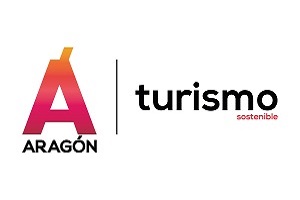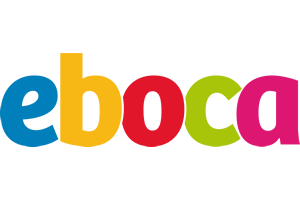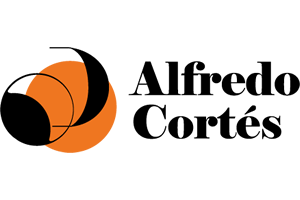Taisi directs its production to industrial customers such as Grupo Lacasa, Frutas de Aragón Caro, Arruabarrena, Magdalenas Lázaro, Grupo Delaviuda, Antiu Xixona, El Lobo and Europastry.
This company, committed to the 2030 Agenda, is committed to R&D&I, the added value of its products and quality, and has Halal, Kosher and organic production certificates, among others.
With 24 awards in just twelve years and a turnover of seven million euros, the Aragonese company Taisi is one of Spain’s leading companies in the production, development and sale of fruit and vegetables in jam, candied and in syrup for industrial customers. Founded in the forties, this company has entered fully into the 21st century thanks to Ruth Lázaro Torres (Calatayud, 1972), third generation of a saga that has managed to take 30% of its production to international customers, both in Europe and in America, Asia and Oceania.
Companies such as the Aragonese Grupo Lacasa, Frutas de Aragón Caro, Arruabarrena or Magdalenas Lázaro; turroneras and chocolatiers such as Grupo Delaviuda, Antiu Xixona or El Lobo; or large freezers such as Europastry; use Taisi products in their articles. Not in vain, the elaborations of this company are present in roscones of Kings, nougat, chocolates, fruits of Aragon, ice cream, biscuits, croissants, puff pastries, muffins, or cakes such as those sold by Mercadona, and have received awards, such as “Superior Taste Award”, in several of their creations: candied orange in 2016; candied carrot in 2017; TAISI Grenache jam in 2018; passion fruit jam in 2020; and kiwi in syrup in 2021.
A member of the United Nations Global Compact, Taisi has achieved its position, among other reasons, thanks to the work that Ruth Lázaro and her team have been carrying out since joining the company in 1996. Thanks to this work, they have achieved quality certificates such as the Halal certificate, the Kosher certificate, the FSSC 22,000 standard, the ISO 9001 and ISO 45001 standards or certificates in organic production that have opened the doors to expansion and export. With work in technological surveillance, Artificial Intelligence and data mining, Taisi is undoubtedly committed to R+D+I, quality and added value as a differential and business element. A culture of innovation and a commitment to sustainability on which it bases its present and future development.
The Bilbilitana company Taisi is currently led by Ruth Lázaro, a graduate in Social Work and Sociology, but it was in the forties of the twentieth century when it saw the light, by the hand of his grandfather, José María Lázaro Yagüe. And with exports already in her business DNA from the very beginning. “My grandfather exported plums to France,” recalls Lázaro. The 1940s marked the beginning of the company, although it was the 1960s that kick-started the commercial industrial development of a company whose products today reach countries such as Poland, Switzerland, Italy, Austria, the Netherlands, Mexico, India, Australia and the United Arab Emirates, explains its current CEO. A presence beyond our borders, which, for several years, also reached countries such as Singapore or Japan, areas that were left behind for Taisi after the irruption of China in this market.
Innovation, customized products and R&D
Since its origins, Taisi has had internationalization on its horizon, although exporting, in the case of the agri-food industry, is by no means simple. “If you don’t have quality and food safety, and if you don’t guarantee food safety, with a series of certificates that we have, such as the FSSC 22,000 standard, you don’t sell,” says Taisi’s CEO. A drive for quality and innovation that has gained strength after Ruth Lázaro joined the management team in the nineties, with R&D&I at the crest of a wave that began with “pure craftsmanship” in its beginnings, at the hand of its founder, and grew thanks to the industrial development that Ruth Lázaro’s father incorporated in his years at the head of the company.
A commitment to innovation and quality that has led them to create, at the dawn of the 21st century, “personalized, customized products. We decided then that we didn’t just want to make candied cherry, but also candied carrot, or candied beet, as well as other new things,” she explains. A spirit that the CEO extends to her entire company in what she calls a “culture of innovation”: new ideas do not only come from a specific department, but from all stages of the chain. Thus, while her R&D&I department is more specifically dedicated to the search for new products, other colleagues carry out tests at various points along the production line. This collective work is necessary because, according to Lázaro, without this commitment to quality and added value, “small and medium-sized companies are doomed to disappear”.
The axis of its innovation projects is its raw material, fruits and vegetables. However, this company from Bilbilitana is also immersed in various digitalization projects. “For us it is very important in the world of innovation to be open, with our antennae deployed. That is why we have a technology watch plan, and we are working with Artificial Intelligence or data mining, to know where the trends are going, to know what the competition and reference companies are doing for us. This is a very interesting project that we are working on with the Chamber of Commerce. The idea is to digitize what we used to do by hand, and thus invest less time in data entry and more in data analysis, to draw conclusions and make quick decisions,” he explains.
SDGs in Taisi’s DNA

Taisi, a company committed to the Sustainable Development Goals (SDGs), joined the United Nations Global Compact in 2017, but, as he recalls, the lines of work that the UN marks with these goals were already integrated into the company beforehand. “We, with each certificate we obtain, seek to advance the systems, but under a standard. For example, in the 2000s, when we made progress in the field of quality, we looked at ISO standards. Someone had already worked previously on standards, procedures and norms: we were not going to invent systems. What we do at Taisi is to take that system and adapt our procedures to those standards,” he says. “The same thing happened to us with the world of social responsibility. First we saw what systems there were, the RSA, and since 2016 we started to be guided by it,” he says.
A path that led this company, in 2017, towards the SDGs, a path that Lázaro followed naturally, since, after studying them, he realized that they were in tune with his way of seeing the company. “I have never understood the Taisi project as a purely economic project, but also as a social project, of the territory, a family inheritance, a legacy… a project of a population, of farmers… a transformation”, he points out. In this way, Taisi is aligned with the SDGs intrinsic to economic and industrial activity (SDG 8, decent work and economic growth; SDG 9, innovation and infrastructure; SDG 12, responsible consumption), those of a more social dimension (SDG 1, eradication of poverty; SDG 2, fight against hunger; SDG 4, quality education; SDG 5, gender equality), those related to the environment (SDG 6, drinking water and sanitation; SDG 7, renewable energy; SDG 13, combating climate change) and those related to ethics (SDG 16, peace and justice; SDG 17, partnerships for the achievement of the goals).
A work towards the fulfillment of the 2030 agenda that came naturally to this company of sixty employees, with a percentage of female employment of around 60%. “We have been working for so long, for example, on equality measures, that we didn’t realize we were doing it, and we didn’t give value to the fact that we were reconciling, changing shifts, that ‘I’ll make it up’, that ‘I have an exam’, that ‘I have to take care of my father’… that was part of our dynamic,” she recalls.
But there is always a way to go in terms of sustainable development. “In recent years, we have developed the SDGs in particular, which have to do with climate action, water, energy… with the environmental dimension. We have already developed the social dimension very well, as well as the economic dimension, to be economically viable, and also the dimension of partnerships, something that hangs over all of the SDGs, and which is included in SDG 17. I believe that we are a very open company that generates networks (with customers, suppliers, our staff, our territory), that generates a very large ecosystem,” he argues.
Commitment to the environment, the territory and people

Ruth Lázaro understands her company as a project connected to its environment. “I don’t understand this project any other way. This leads you to make decisions, like the ones we made in the pandemic. If we had then put the economic dimension above the decision to respect jobs and maintain the activity, or not to carry out ERTEs, we would have made other decisions. Economically, our decisions during the pandemic were very bad, but socially I think they were necessary”. And the fact is that “social and environmental commitment is not only not at odds with generating business, but it is also necessary for a project to be sustainable. I am a third generation, I am a third link in a project called Taisi. And if I want there to be more future links, I must make it sustainable, not only economically, but also socially, in the environment in which it was born, and environmentally,” he says.
And the way to implement this commitment to sustainability in its broadest sense is materialized in the fixation of population by hiring people from the surroundings near the factory, by acquiring the fruits with which they make their products preferably from farmers in the area, and through the search for talent beyond a curriculum. For us, being “prepared does not mean bringing a résumé, but bringing a backpack of attitudes, willingness to learn, sacrifice, tenacity, decision-making capacity and teamwork. In Taisi we have formed a good team with older people, who come from previous experiences, who know the value of working in Calatayud, and who want to stay here with their families,” he says.

Presence at international fairs
This Bilbilitana company of international projection is present in the big food fairs like the ISM, the biggest fair of sweets and snacks, which is celebrated every year in Cologne (Germany). The fairs, Lázaro points out, are an important meeting point with its customers, not only European, but also Spanish and from other corners of the planet.
The origin of Taisi: from nurseries to exports
Taisi, which today exports to more than a dozen countries, emerged more than sixty years ago from the nursery activity of his grandfather, as well as from the legacy of several generations before him dedicated to the commercialization of fruits and cereals. Thus, in its beginnings, Ruth Lázaro’s grandfather was dedicated to the sale of fruit trees to farmers who, after marketing a part as fresh fruit, needed to apply preservation techniques to the remaining product, such as jams or candied fruit. A need that José María Lázaro Yagüe, Ruth’s grandfather, came to meet with the founding of what is now Taisi.
Originally, the company bore the name of its founder. A nomenclature that Ruth’s father, José María Lázaro Jr., decided to change after taking over the baton in 1969. As the current CEO recalls, one of the names used at that time was Falaguera, the name used in Fabla Aragonesa to refer to wheat when it is vigorous, and which has been the family nickname since ancient times (because of an ancestor whose neighbors began to call him by that name). Finally, the nomenclature Taisi, evocative of the oriental philosophy that so fascinated Ruth Lazaro’s father, won out. So much so that, for a time, the company’s logo was reminiscent of yin and yang.
24 awards in just over a decade
Taisi has received a total of 24 awards in just twelve years, given by organizations and institutions such as Instituto Aragonés de Fomento (IAF), Asociación de Jóvenes Empresarios de Aragón (AJE), CEPYME, ARAME, Cámara de Comercio de Zaragoza, Centros de Excelencia CEX, Centro de Empresas e Innovación de Aragón (CEEI), Gobierno de Aragón, Ministerio de Sanidad or International Taste Institute.
Below is the list of awards received by Taisi, by year:
2023
National Award “Most Inspiring CEO”. Más Familia Foundation.
EXPORT Award 2022. Zaragoza Chamber of Commerce.
2022
ARAGÓN CIRCULAR Seal. Government of Aragon.
2021
SABOR SUPERIOR “Superior Taste Award”. TAISI kiwifruit in syrup. International Taste Institute.
2020
EXCELLENCE IN ARAGON Award. Government of Aragon.
SME OF THE YEAR Award. Accésit Socially Responsible Company. Zaragoza Chamber of Commerce.
GOLD ORGANIC AWARD and SABOR SUPERIOR “Superior Taste Award”. TAISI organic passion fruit jam. International Taste Institute.
National EXCELENCIA CEX Award. CEX Centers of Excellence.
2019
ODS Award. Government of Aragon.
SME OF THE YEAR Award. Accesit Employment and Training. Zaragoza Chamber of Commerce.
EMPRESA FLEXIBLE National Award. Ministry of Health.
CON MUCHO GUSTO Award. GASTRONOMY. Heraldo de Aragón.
2018
SABOR SUPERIOR “Superior Taste Award”. TAISI Grenache jam. International Taste Institute.
2017
PYME POR LA IGUALDAD (SME FOR EQUALITY) Award. CEPYME National.
SABOR SUPERIOR “Superior Taste Award”. TAISI Candied Carrot. International Taste Institute.
ARAGON SOCIAL RESPONSIBILITY Award. Government of Aragon.
2016
CEPYME ARAGÓN Award. Region of Calatayud.
ALIANZA AGROALIMENTARIA ARAGONESA Award.
ARAGON, BUSINESS AND FUTURE Award. Finalist. Ibercaja.
SABOR SUPERIOR “Superior Taste Award”. TAISI candied orange. International Taste Institute.
2015
OPEN INNOVATION ARAGÓN Award. 1st finalist. IAF and CEEI.
2012
NATIONAL YOUNG ENTREPRENEUR Award. Accésit Generational Relay.
ARAGON YOUNG ENTREPRENEUR Award. Finalist. IAF and AJE.
2011
WOMAN PROFESSIONAL CAREER AWARD. ARAME.
Certifications achieved by Taisi
RSA+ Seal 2023, 2022, 2021, 2020, 2019. RSA Seal 2018. Government of Aragon.
Aragón Circular Seal (2022). Government of Aragon.
EFQM Model of Business Excellence. Silver Seal. Government of Aragon.
Organic Production Certificate (2019). Aragonese Committee of Organic Agriculture.
ISO 45001:2018. AENOR.
KOSHER Certificate (2022). Star-K Kosher Certification
HALAL Certificate (2018). Halal Institute.
V-LABEL European Vegetarian Certification. Spanish Vegetarian Union (UVE).
FSSC 22000 (2018). AENOR.
DIE, Distinctive of Equality in the Company 2017. Ministry of the Presidency, Relations with the Courts and Equality. Government of Spain.
ISO 9001/2015. AENOR.
Decalogue of Integral Sustainability of the Agri-Food Industry. Ministry of Agriculture, Fisheries and Food. Government of Spain.
UNITED NATIONS GLOBAL PACT (2017, as partners).
EFR Certificate in Conciliation Family-Responsible Entity. Más Familia Foundation.














